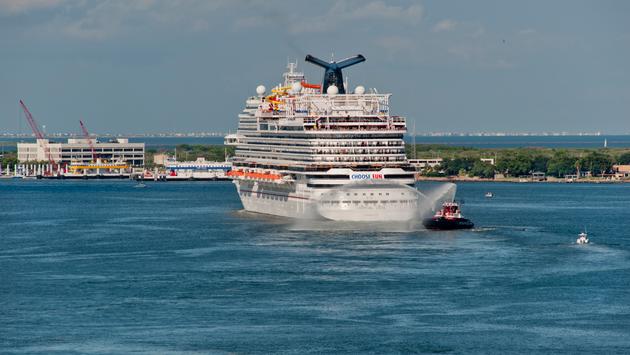Unvaccinated Guests Will Need Doctor’s Notes To Board Carnival Cruises

Two weeks back, 27 people aboard the Carnival Vista tested positive for COVID-19 and all were asymptomatic at the time of reporting. However, NBC News has now reported that the virus ultimately claimed the life of one of those passengers, a 77-year-old woman from Oklahoma, who passed away on August 14.
This represents the first report of a COVID-related death onboard a cruise ship since sailings in the U.S. and Caribbean resumed in June.
The voyage was a seven-day, round-trip Western Caribbean cruise out of Galveston bound for Belize. Carnival Vista officials reported the cases, which had already been isolated and contact-traced onboard, to Belizean port authorities prior to the ship’s docking on August 11.
The passenger in question received medical care while onboard the ship, but was taken onshore in Belize to receive urgent care when her symptoms worsened. Ultimately, she was evacuated back to the U.S. via air ambulance, according to a Belize Tourism Board press release.
These breakthrough infections occurred despite the fact that 96.5 percent of Carnival Vista’s contingent was vaccinated, and that Carnival requires that all passengers have a negative PCR test taken between 72 and 24 hours of boarding. The deceased passenger was herself fully vaccinated at the time of departure and “almost certainly did not contract” the virus on board the ship, Carnival said.
Unvaccinated guests must additionally take an antigen test upon embarkation and again within 24 hours prior to debarkation. However, it so happens that this voyage was sailing from Texas, a state which prohibits businesses from requiring proof of vaccination from their customers, including cruise lines.
In both Texas and Florida, Carnival now requires unvaccinated guests to show proof of travel health insurance during check-in, placing the financial cost of potentially coming down with COVID-19 solidly onto unvaccinated travelers’ own shoulders.
In light of all this, the cruise line is introducing yet another protocol into its arsenal of defenses aimed at keeping COVID-19 from sneaking aboard its vessels.
